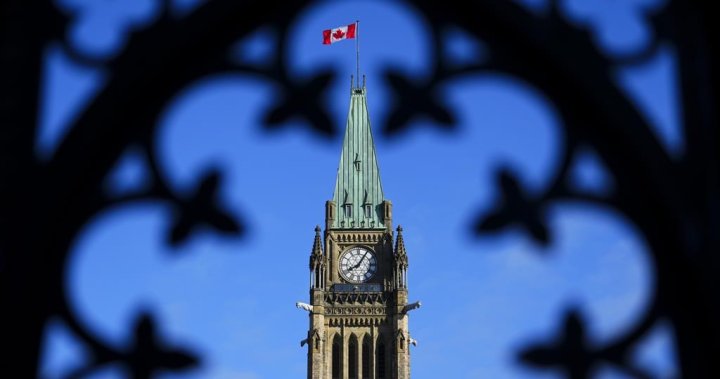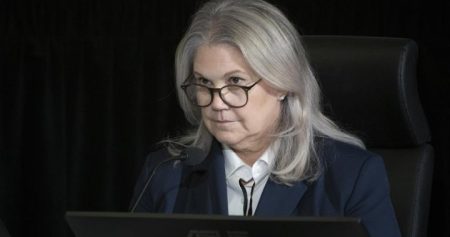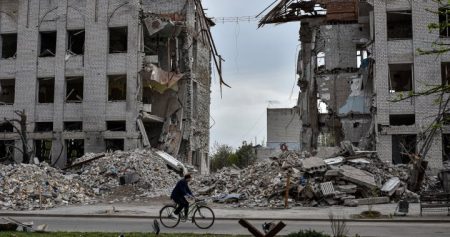Zain Haq, a climate activist residing in British Columbia, faces imminent deportation to Pakistan. Arriving initially in Canada on a student visa, Haq co-founded the activist group Save Old Growth and subsequently faced legal repercussions for his involvement in roadway-blocking protests. He pleaded guilty to mischief charges related to these demonstrations. Despite receiving a temporary permit to remain in Canada, his application for permanent residency based on humanitarian and compassionate grounds has been denied, leading to his scheduled deportation. Haq and his Canadian wife, Sophia Papp, express disbelief and frustration at the bureaucratic processes that have led to this outcome, asserting that they pose no threat to public safety and that Haq’s offenses were non-violent. They maintain a sliver of hope for intervention from Immigration Minister Marc Miller to prevent the deportation.
Haq’s journey began with his arrival in Canada as an international student, driven by a passion for environmental activism. He co-founded Save Old Growth, an organization dedicated to advocating for environmental protection. His activism, however, resulted in legal challenges. Participation in protests blocking roadways led to charges of mischief, to which Haq pleaded guilty. This conviction complicated his efforts to secure permanent residency in Canada. While granted a temporary reprieve allowing him to remain in the country, his subsequent application for permanent residency on humanitarian and compassionate grounds was ultimately denied. This denial set in motion the deportation process, leaving Haq and his wife in a precarious and uncertain situation.
The impending deportation has placed immense strain on Haq and his Canadian wife, Sophia Papp. They express disbelief at the turn of events, citing the non-violent nature of Haq’s offenses and their commitment to public safety. They argue that the bureaucratic processes have failed to adequately consider their circumstances and have resulted in an unjust outcome. The couple emphasizes the disruption and distress this situation has caused, separating them from their home and community in Canada. Their hopes now rest on a possible intervention from Immigration Minister Marc Miller, which they view as their last recourse to prevent Haq’s forced removal from the country.
Haq’s case underscores the complexities and challenges faced by individuals navigating immigration systems, particularly those with a history of activism or legal involvement. While the Canadian government maintains the prerogative to enforce its immigration laws, cases like Haq’s raise questions about the balance between upholding legal procedures and considering individual circumstances, especially in cases involving non-violent offenses. The situation also highlights the potential impact of activism on immigration status and the vulnerability of individuals who engage in protest activities. Furthermore, it illustrates the difficulties encountered by mixed-status couples, where one partner’s immigration status can jeopardizes the stability and future of the relationship.
The potential deportation of Zain Haq has ignited debate and discussion about the application of immigration laws in Canada. Supporters of Haq and his wife argue that the decision to deport him is disproportionate to the offenses he committed, particularly given their non-violent nature. They also emphasize his contributions to Canadian society through his environmental advocacy and his establishment of roots in the country through his marriage to a Canadian citizen. Conversely, those who support the deportation emphasize the importance of upholding the rule of law and argue that Haq’s actions, regardless of their intent, violated Canadian law and therefore justify his removal. This debate raises broader questions about the role of activism in a democratic society and the extent to which individuals should be penalized for engaging in peaceful protest.
The outcome of Haq’s case will have significant implications for his future and that of his wife. If deported, Haq will be separated from his wife and his established life in Canada, facing an uncertain future in Pakistan. This separation would undoubtedly cause considerable emotional and financial hardship for both of them. Moreover, the decision could set a precedent for other activists and mixed-status couples, potentially deterring individuals from engaging in activism and creating further challenges for those seeking to navigate the complexities of immigration processes. The case underscores the need for a careful examination of immigration policies and procedures to ensure that they are applied fairly and with consideration for individual circumstances, particularly in cases involving non-violent offenses and established family ties within the country.










